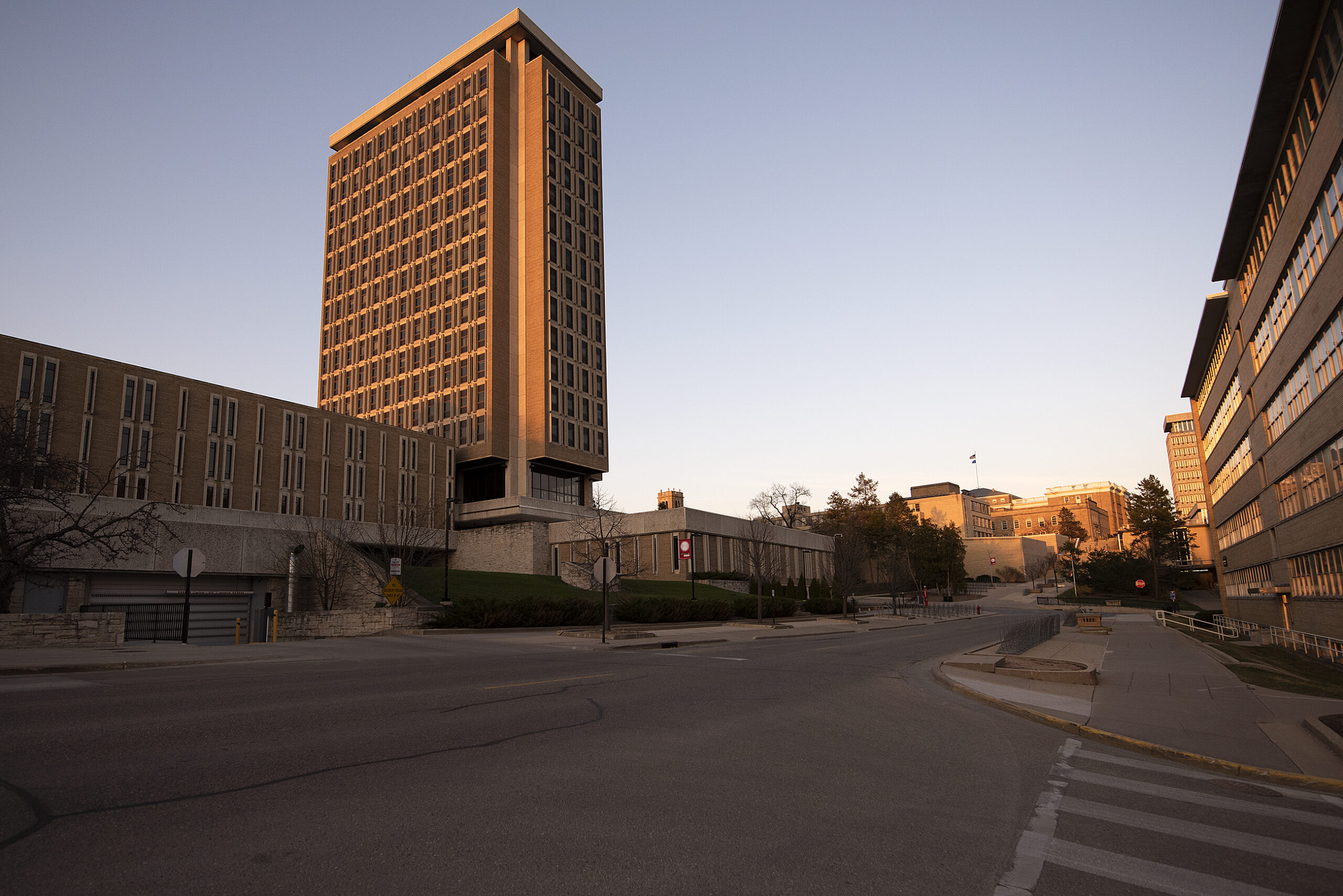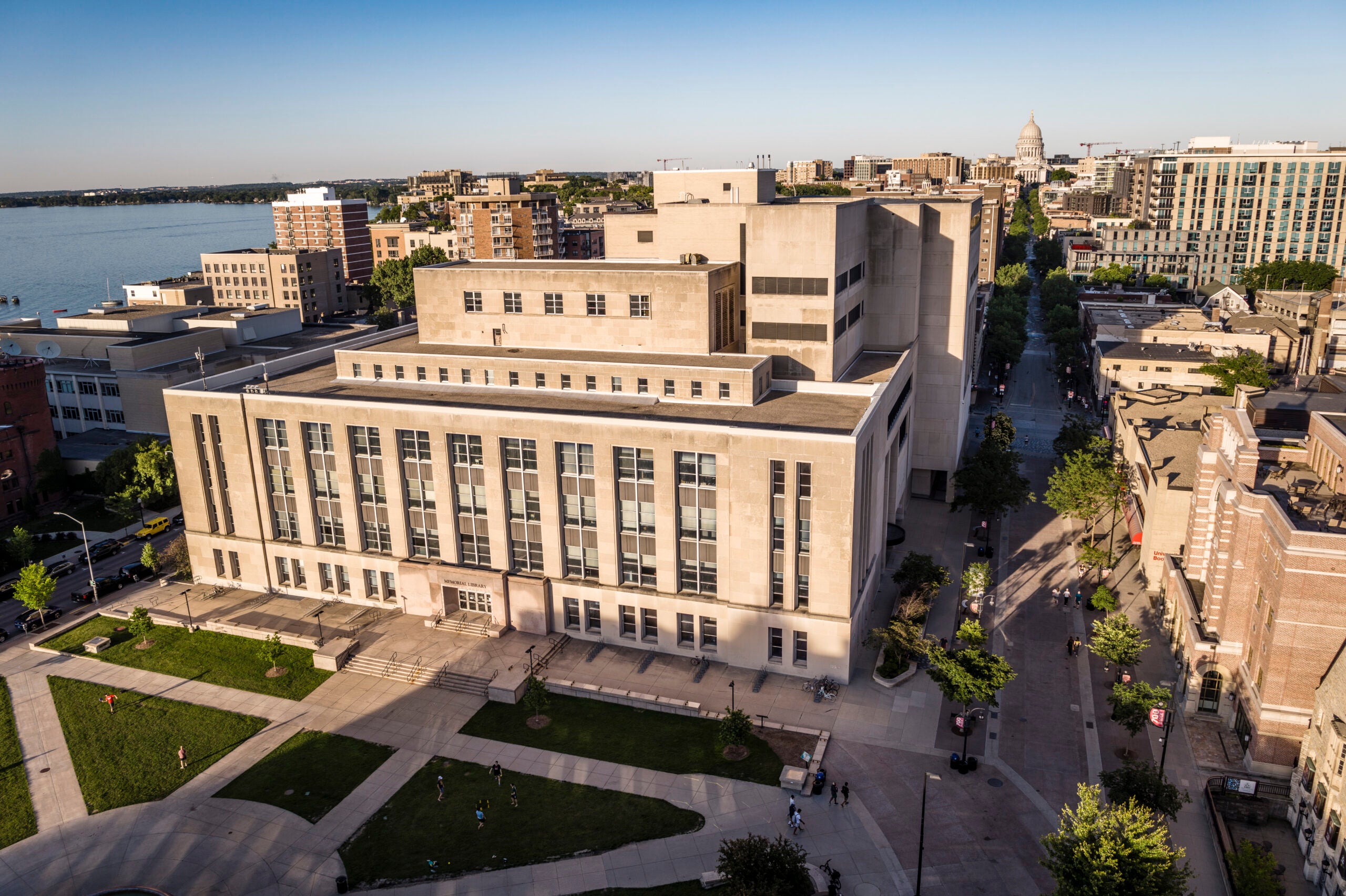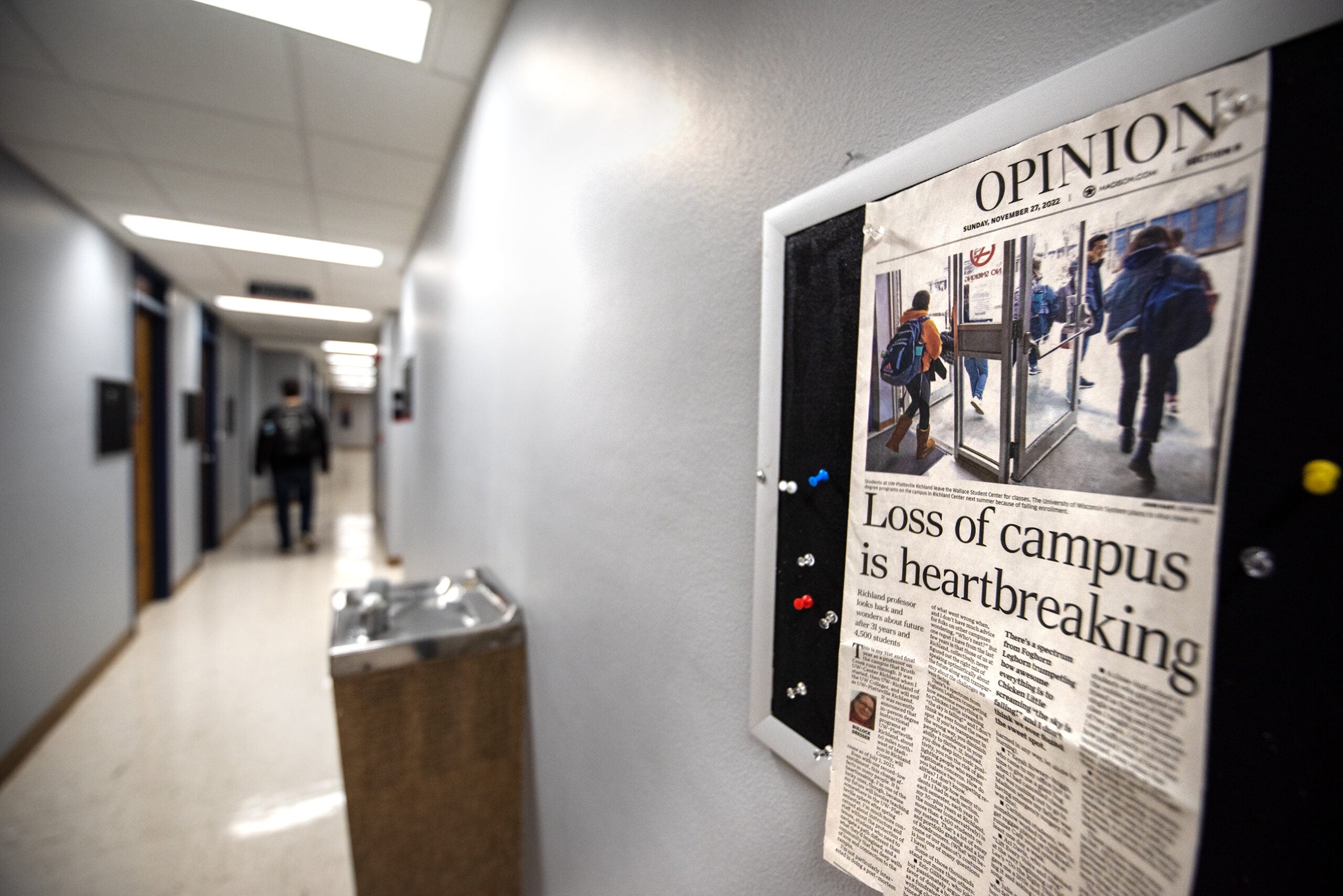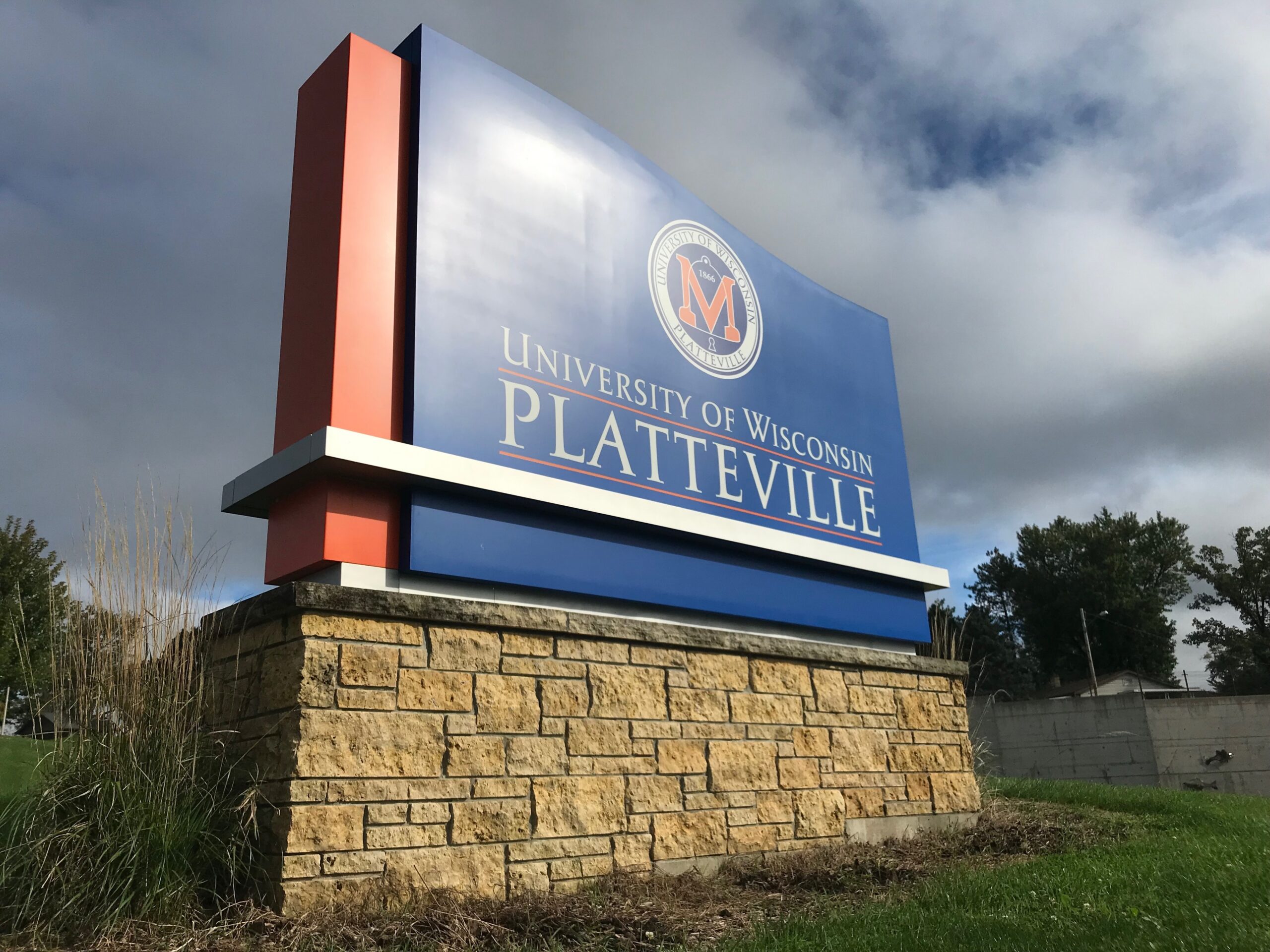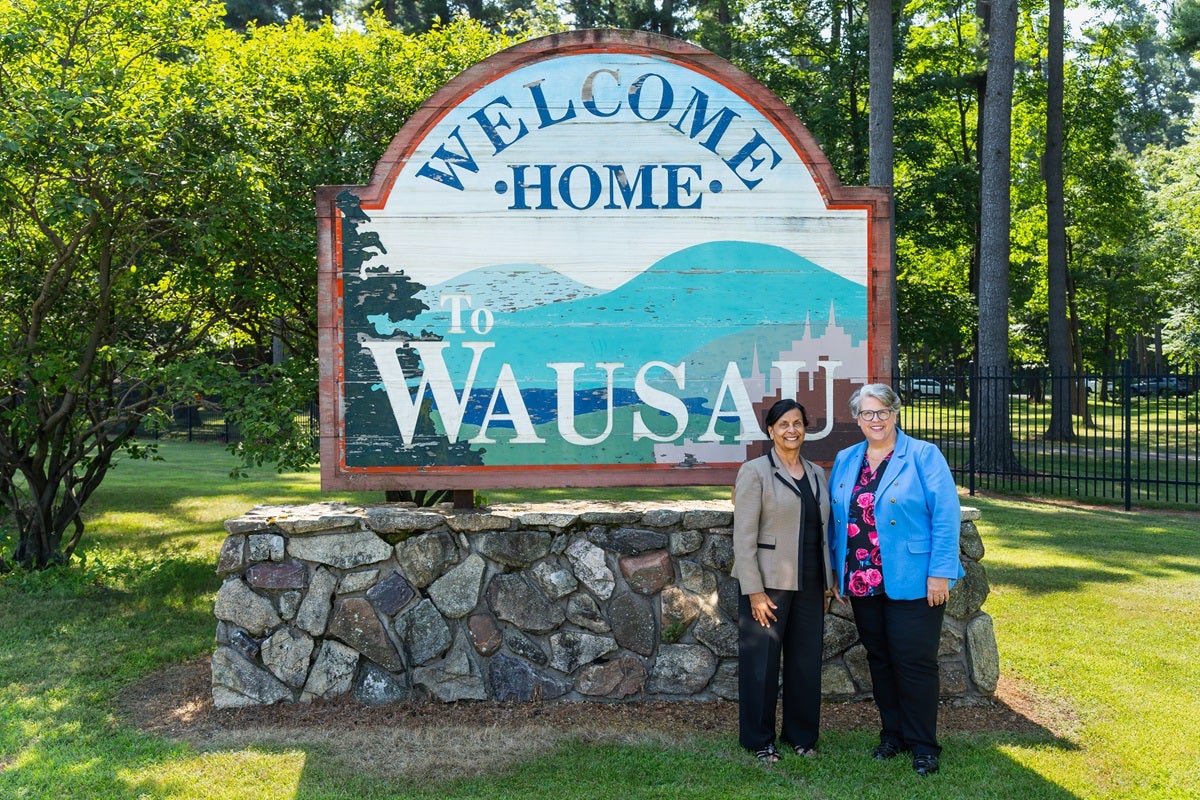A new state Senate report calls for further restructuring of all University of Wisconsin System campuses except UW-Madison. The plan recommends “regionalization” of the state’s 12 other universities to achieve 15 percent spending reductions and avoid “the closure of several comprehensive campuses.”
The report, titled “A Wisconsin Roadmap to Success in Higher Education for the Twenty-First Century,” was released by the Senate’s Committee on Universities and Technical Colleges on Wednesday.
It cites declining enrollment and projections showing future declines in high school graduates as the impetus for another reorganization of the UW System.
News with a little more humanity
WPR’s “Wisconsin Today” newsletter keeps you connected to the state you love without feeling overwhelmed. No paywall. No agenda. No corporate filter.
During a Wednesday meeting, state Sen. Roger Roth, R-Appleton, who chairs the committee, said current circumstances require a restructuring.
“There is no doubt Wisconsin is facing a looming crisis in higher education,” said Roth. “If we continue on our current path, the way our systems have developed over time doesn’t match an ideal design if any of us were to create it today.”
The report directs the Board of Regents to “continue the successful 2017 consolidation” of the state’s two-year colleges by “further consolidating the campuses of the UW System into four geographic regions, plus UW-Madison.” The regions, and subsequent campuses, would include:
- Northwest region: UW-Eau Claire, UW-River Falls, UW-Stout and UW-Superior.
- Northeast region: UW-Green Bay, UW–Oshkosh and UW-Stevens Point.
- Southwest region: UW-La Crosse and UW-Platteville.
- Milwaukee region: UW-Milwaukee, UW-Parkside and UW-Whitewater.
The report states that members of the Board of Regents should consolidate administrative and budget functions along with academic programs within a particular region.
“At least 15 percent of current expenditures should be saved through the plan and then reinvested toward student affordability, increasing faculty pay where deficiencies exist, and expanding online programming,” said the report.
The committee report also includes a recommendation for fellow state lawmakers to end the eight-year-long freeze on undergraduate tuition increases at the end of June.
In an interview with WPR, Roth said his office drafted the report and that he sees it as a roadmap for the UW System, which lost 15,000 students in the last decade.
“Depending on how you slice it, you could shut down three college campuses and not even notice a difference, and we’re forecasted over the next decade to do the same,” said Roth.
Now that the report is out, said Roth, the senate committee will give stakeholders time to think about it.
“But my hope is that this fall we can start working on some of those recommendations, seeing if we can build some consensus in moving those forward as pieces of legislation,” said Roth.
WPR sent interview requests to all UW campuses to get feedback from chancellors. Most didn’t respond. A spokesperson for UW-Madison declined comment. Communications staff with UW-Superior and UW-Oshkosh referred WPR to UW System Administration for comment.
On Wednesday, interim UW System President Tommy Thompson issued a statement saying the state’s colleges should “relentlessly pursue efficiencies that benefit both taxpayers and students.” He pointed to ongoing efforts to standardize and revamp information technology and administrative functions to find savings, but cautioned against the regionalization proposed in the Senate report.
“Our universities are strong when they are accessible and connected to their communities,” said Thompson. “A proposal to regionalize them threatens these critical connections by adding bureaucracy that will impede their ability to respond to community needs and depress local fundraising and business support facilitated by campus leadership. I believe the regional approach would be a step in the wrong direction.”
The Senate report calls for a reevaluation of academic programs at each UW campus, other than UW-Madison, in order to determine “whether programs can collaborate or be eliminated.”
That language is similar to that included in former UW System President Ray Cross’ “Blueprint for the University of Wisconsin System Beyond COVID-19,” which was released in June 2020. The blueprint faced significant backlash from UW System faculty, staff and student groups.
During the Wednesday committee meeting, state Sen. Steve Nass, R-Whitewater, said the UW System has reviewed academic programs to some extent, but he’d like to see more.
“We still have a lot of duplication, I think, in the university system,” said Nass. “I think you can pretty much go to any campus and get a teaching certificate and I think that could be altered.”
Jon Shelton, a professor at UW-Green Bay and a member of the Board of Regents faculty representatives, said the report is unclear about exactly how campuses other than UW-Madison would become regional entities. Shelton said UW-Green Bay has been growing its enrollment in recent years, particularly by reaching out to growing Latino and Somali populations in the area.
“And if you were to regionalize it in this way, what you would see is, I think, the loss of the ability for campuses to truly serve their local community,” said Shelton.
Neil Krause, a UW-River Falls professor and faculty representative, said the projected demographic declines cited by the Senate report, lawmakers and some university leaders to justify program cuts should be more closely scrutinized.
In particular, Krause points to a report by the Western Interstate Commission on Higher Education in December that noted high school graduation rates were 10 percent higher than prior projections from the group. Still, the commission said while graduations are expected to peak in the mid 2020s, there would be a “modest decline” through the end of 2037.
“But, I think that when people hear that term ‘demographic cliff,’ they panic because so much of our funding is tuition driven,” said Krause. “So, it’s a political term rather than something that has any validity in actual data.”
Projections aside, enrollment has declined significantly at some UW System campuses following a peak around 2010. Some two-year branch campuses within the UW System saw enrollment declines of more than 30 percent last fall compared with fall 2019. Krause said that could be driven by personal decisions related to student debt.
State Sen. Chris Larson, D-Milwaukee, who also sits on the committee, said he and other Democratic members first saw the report just before Wednesday’s meeting.
“It’s a new angle at trying to dissect our university system and weaken one of the strongest institutions in the state of Wisconsin,” said Larson.
Wednesday’s meeting was originally set to speak with new members of the Board of Regents appointed by Gov. Tony Evers. Committee Chair Roth asked each appointee whether they supported maintaining a tradition of having the regent vice president ascend to the regent president position. The question is timely, because regent Michael Grebe, who was appointed by former Republican Gov. Scott Walker, said he expects to win a June election for the seat.
Larson said the questions from Roth are less about tradition and more about politics.
“I think they’re trying to cling, white knuckled, to the past and trying to hold on to the Walker majority,” said Larson.
Roth said his questions were aimed at determining if Evers’ appointees support “the politicization of the regents.”
“I think this will be a very telling thing for this board and really dictate how it’s going to be perceived moving into the future if they dispense with that tradition or if they continue it,” said Roth.
Wisconsin Public Radio, © Copyright 2026, Board of Regents of the University of Wisconsin System and Wisconsin Educational Communications Board.

